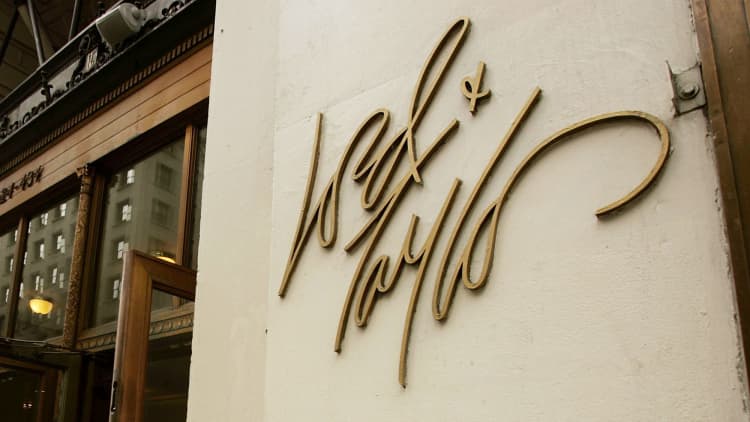
Shoppers at Lord & Taylor, Saks Fifth Avenue and Saks OFF 5th stores could have gotten more than they bargained for following news of a data breach at those retailers.
News of the intrusion, affecting at the brands, which are owned by Hudson's Bay Company, emerged over the weekend.
The attack affected card payments made in some of the retailers' stores in North America. The company said it does not believe its e-commerce and digital platforms were affected.
Hackers have reportedly been selling the compromised information, which they began stealing in May, on the dark web.
The size of this breach is "significant," said CreditCards.com senior industry analyst Matt Schulz.
"People need to understand that when your information is out there, it's out there forever and the danger doesn't subside when a breach fades from the headlines," Schulz said.
It is also "troubling" how long the data leak went undetected, a sign that hackers are getting more sophisticated, said Eva Velasquez, president and CEO of the Identity Theft Resource Center.
You should take certain steps to monitor your information and protect your data from potential threats:
Stay up to date
Keep tabs on any new information provided by the company that has experienced the breach. Those organizations will often provide helpful services that consumers can use to help mitigate the effects on their personal information.
"We wanted to reach out to our customers quickly to assure them that they will not be liable for fraudulent charges that may result from this matter," Hudson's Bay said in a statement. "Once we have more clarity around the facts, we will notify our customers quickly and will offer those impacted free identity protection services, including credit and web monitoring."
If you think you were affected by this breach, you can check the websites for Saks Fifth Avenue, Saks OFF 5th and Lord & Taylor for more information. You can also phone the company's call center, starting from Wednesdsay, at 855-270-9187.
So far, there is no evidence that consumers' Social Security numbers or driver's license numbers have been compromised, according to the company.
Consider a fraud alert or credit freeze
Curtail thieves' ability to open new lines of credit in your name by setting up a fraud alert or by freezing your credit altogether with the three major credit reporting firms — Experian, Equifax and TransUnion.
A fraud alert notifies those companies that your information may have fallen into the wrong hands. As a result, they will take extra steps to verify that any applications for credit in your name are legit.
A fraud alert, however, does not block access to your credit report, noted Bruce McClary, a spokesman for the National Foundation for Credit Counseling. Access to that information can be blocked by setting up a credit freeze.
More from Personal Finance:
Got crypto? Here's how to avoid an audit from the IRS
Here's why letting your college grad move back home could be a bad idea
For the $521 million Mega Millions jackpot winner, here are tips for keeping it quiet
"Putting a freeze on your credit report is the ultimate step you could take to lock down as much personal information as possible," McClary said.
It could cost up to $10 to freeze your credit with each credit reporting firm depending upon the state in which you live. (Only a few offer free credit freezes.)
Keep in mind that you will also have to unfreeze your credit when you want to open a new account, such as when you are buying a car or purchasing a home. That process could take a week or two, McClary said.
Watch for warning signs
Small transactions for as little as $1 to $2 that pop up on your account could be a sign of a bigger problem.
"We tend to think that when bad guys use your credit card they go on these giant spending sprees," Schulz said.
But small transactions "can be as much of a red flag of a possible identity theft as a $200 or $500 purchase," he said.
That is because thieves often test to see if the card works and if they will be spotted by charging small amounts. Most credit card companies will reverse the charges once they are alerted to them, Schulz said.
Also try to use credit cards instead of debit cards, Schulz suggested, which will limit the amount of cash compromised if your accounts are hit.
Set up real-time updates
Most accounts come with the ability to set up texts or notifications when transactions are made. Set the dollar amount for those alerts low so that you get one every time a transaction to your account goes through, Velasquez suggested.
"If you see it and don't recognize it, that's when you reach out," she said. "You can really stem the tide when you handle these things early."


